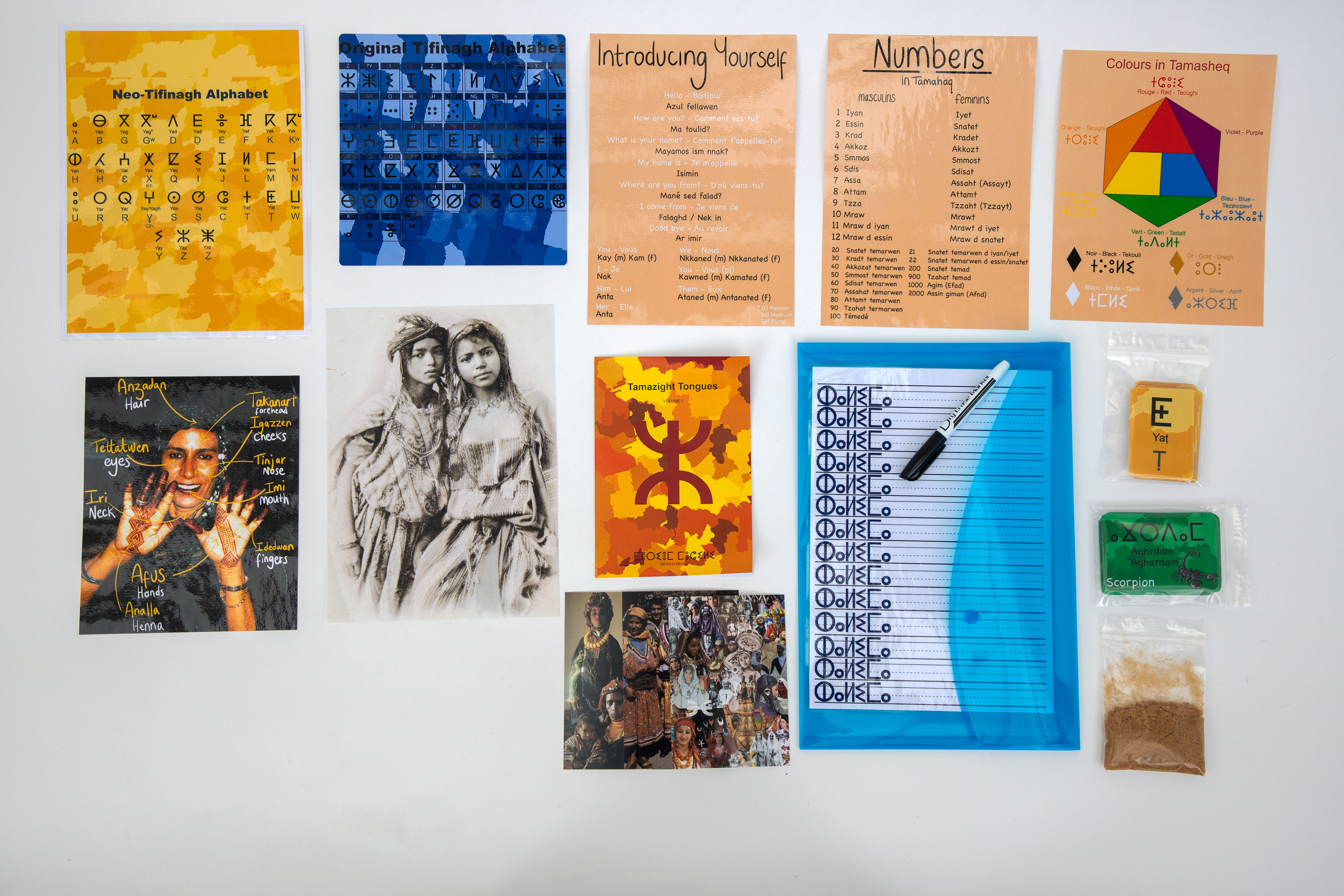




During my time at Central Saint Martins for my BA in Fine Art, my practice has been deeply immersed in a journey of reconnecting with and preserving my cultural identity, as well as that of my people and country. As I mature, I have come to realise the significance of grounding oneself in culture and traditions, resisting the consequences of globalisation, despite its positive aspects in connecting people globally.
Indigenous cultures have faced immense challenges and are rapidly losing their unique identities due to desensitisation from the internet and the increasing occurrence of ethnic cleansing. The Amazigh culture, in particular, has been experiencing this interpenetration for centuries. Despite the Imazighen's resilience towards Western influences, Arabisation under the disguise of Islam has resulted in the demonisation and erasure of our cultures. One of my main concerns is how a country's official language has become synonymous with the ethnic group they are recognized as belonging to. In Algeria and other African countries, the recognition of Arabic as the main official language has led to confusion in identity and patriotism. The loss of various Tamazight languages spoken by different regions in Algeria, and the estimation of losing a language every 14 days globally, exemplifies the violent yet quiet cultural imperialism happening right under our noses.
In my dissertation, I delved into the preservation of languages through music, specifically focusing on the Tamasheq language in southern Algeria. As a K-Pop fan, I have been inspired by how music can be a powerful tool for activism. BTS, currently the world's biggest boyband, has been able to break into the West like no other East Asian act, largely due to the passionate activism of their fanbase, ARMY. This has led me to believe that music can be a driving force in preserving indigenous cultures and encouraging them to unapologetically practice and speak their languages in predominantly Western or Arabic-speaking spaces.
"Tamazight Tongues," is centered around the Tuareg dialects of the Tamazight language. I chose this focus because these dialects have a lower proportion of borrowed Arabic words and have retained the indigenous Tifinagh script, making them the closest branches to the foundation of all Tamazight languages. Inspired by the Algerian band Imarhan, I decided to learn the Tuareg dialect through music as it was the most accessible way for me, given the lack of available lessons in person or online. This approach introduced me to different educational methods across the world, and I have been compiling Tamazight language packs to be distributed to individuals.
Through "Tamazight Tongues," my objective is to celebrate and preserve the rich heritage of the Tamazight language and culture. I aim to inspire others to embrace their roots and take pride in their cultural identity, empowering them to unapologetically speak and practice their languages. By incorporating elements of music and activism, I hope to create a meaningful impact and raise awareness about the importance of preserving indigenous languages in the face of cultural imperialism.